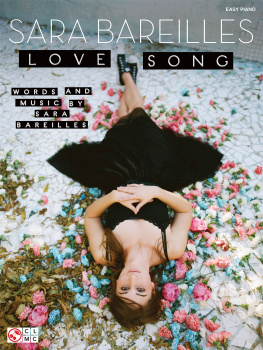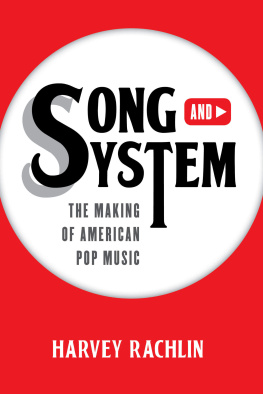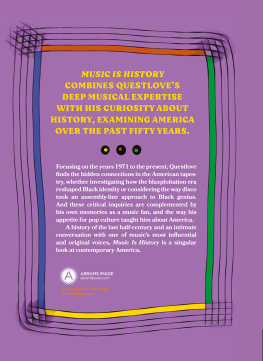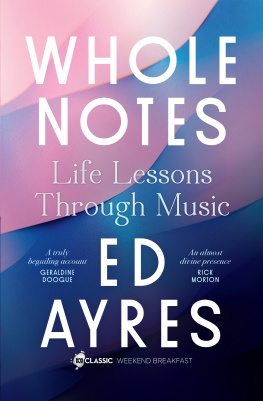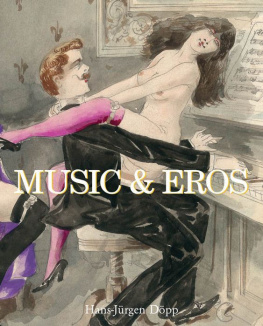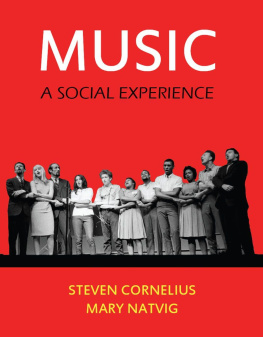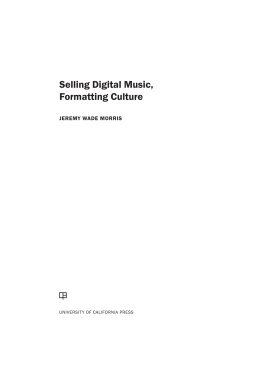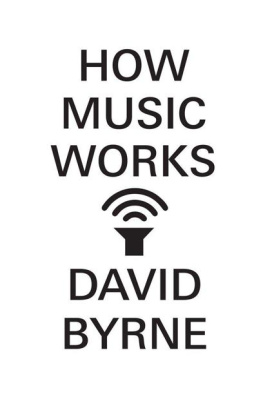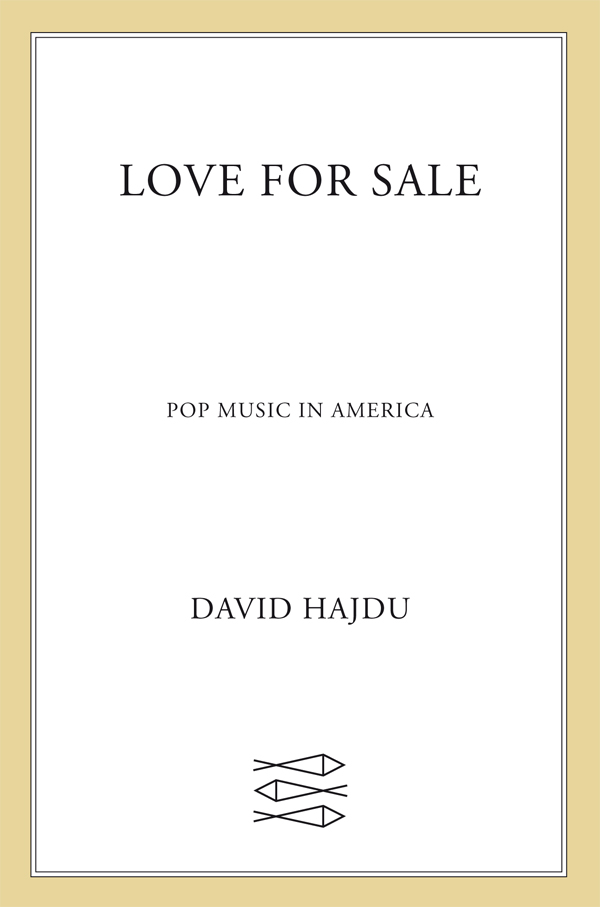Contents
Guide

The author and publisher have provided this e-book to you for your personal use only. You may not make this e-book publicly available in any way. Copyright infringement is against the law. If you believe the copy of this e-book you are reading infringes on the authors copyright, please notify the publisher at: us.macmillanusa.com/piracy.
In memory of my sister, Barbara Ann, and for my sister in spirit, Alisa Solomon
Of the countless terms for categories of music, from classical and blues to the secret-password language of micro-genres like doomcore and neurofunk, the least useful phrase I know is popular music. It provides no information about the music itself: no suggestion of how it sounds or what sort of mood it might conjure, no indication of the traditions it grows from or defies, and no hint of whether it could be good for dancing, for solitary listening, or for anything else. All the term tells you about the music is the fact, or the assertion, that its popularthat a lot of people seem to like it for some reason. The words popular music are like sociological taxonomy, a way of defining a body of creative work as a measure of the group of people to whom it appeals. What good is that, if youre not a sociologist?
I have always found the very notion of the popular off-putting, in part because I have never fully outgrown my early conception of popularity as something restricted to the girls I was afraid to talk to in the sixth grade. I cant help but think of anyone or anything popular as part of a world I dont belong in. This line of thinking is rooted, I admit, in a vain feeling of exceptionalism They all think they know whats cool, but I know better, and that makes me even cooler which, I suspect, is anything but an exceptional way to feel. It seems likely to me that a great many peopleparticularly Americans, being citizens of a society in which rugged individuals and rebels and outlaws and misfits have always been glorifiedthink of themselves as outliers or exceptions in one way or another. Nobody wants to feel like everybodyor just anybodyand because we know we are defined in others eyes by our preferences in music, movies, TV shows, and other cultural products, most of us tend not to talk about popular music as our favorite music, no matter how deeply it has run through our lives.
I like to think of myself as a jazz fan who grew up on rock and roll. But the truth is not so simple. The jazz repertoire was built largely (though not solely) through the adaptation of popular standardssongs originally created by tunesmiths such as George Gershwin and Irving Berlin for the musical theater with the explicit goal of making hits. Gershwins I Got Rhythm, written with the lyricist Ira Gershwin in 1930 for the musical Girl Crazy , is the source material for more than a dozen other tunes in and out of jazz: Duke Ellingtons Cotton Tail, Charlie Parker and Dizzy Gillespies Anthropology, Thelonious Monks Rhythm-a-Ning, Sonny Rollinss Oleo, among others, not to mention the Flintstones theme song. Pop always fed jazz and continues to do so today, with venturesome jazz artists such as Brad Mehldau, Bill Frisell, and the Bad Plus playing repertoires that mingle original works, compositions from the jazz canon, and rock tunes by the likes of Oasis, Soundgarden, Black Sabbath, Nirvana, and Rush. For a period around the middle of the twentieth century, when big-band swing was a musical craze, jazz and popular music were essentially the same thing.
Popular musicor pop, in the terms most popular form, although the two expressions are not always perfectly interchangeablehas run very deeply in my life, as it has run through the lives of innumerable Americans over the course of more than a hundred years, since the mass audience for American popular culture first took form in the late nineteenth century. This book is an effort to come to terms with that history and its meaning. What are we talking about when we talk about pop, and what bearing has the music had on American life? Does popular music matter, really? And why is it so relentlessly romantic and sunny? Or am I wrong to think of pop that way?
Among the ironies of popular music is that it is a phenomenon of vast scale and intimate effect, a product of mass culture that reaches millions of people (or more) at one time and works for each person in a personal way. We could look, as an example, at the tune that qualifies by some measures as the most successful popular song of all time: Yesterday. Composed by Paul McCartney and first released on a Beatles single in 1965, it would be broadcast in its many renditions more than seven million times before the end of the twentieth century. (The other side of the original release was Act Naturally, a country-pop novelty that had been a hit for the Nashville star Buck Owens, warbled on the Beatles record by Ringo Starr. In at least one early advertisement for the record, Act Naturally was promoted as the A side.) Yesterday made The Guinness Book of World Records as the most-recorded song in history, with more than three thousand versions on record. I cant think of a tune that more people of varied ages are more likely to know, aside from Happy Birthday. Yet Yesterday carries grossly different meanings, including some personal meanings, for many people.
For McCartney himself, Yesterday stands as proof of his independent ability as a songwriterevidence in refutation of the widespread view that he was at his best with the help of John Lennon. At various times, McCartney has attempted to have the songwriting credits to Yesterday reversed, to McCartney and Lennon instead of Lennon and McCartney, the standard language for all the compositions John Lennon and Paul McCartney wrote during the time of their partnership, regardless of the weight of the contribution by either person.
For Lennon, after the breakup of the Beatles, the song was a gnawing, inescapable reminder of a past he was trying to leave behind to establish a new identity with Yoko Ono. I go to restaurants, Lennon grumbled to Playboy in 1980, and the groups always play Yesterday.
To Bob Dylan, the tune was a symbol of the pandering sentimentalism in music made in Tin Pan Alley before the revolution in songwriting philosophy that Dylans work incited. When his first biographer, Robert Shelton, brought up that he had heard that Joan Baez was planning to record Beatles material, Dylan launched into a lecture about Yesterday and songs in its vein. Its the thing to do, to tell all the teenyboppers I dig the Beatles, and you sing a song like Yesterday, Dylan told Shelton. God knows, its such a cop-out, man. If you go into the Library of Congress, you can findthere are millions of songs like that written in Tin Pan Alley.
A quick search online brings up an account of Laura Binetti and Steven Blessing, a couple from Fort Myers, Florida, having chosen Yesterday for the father-daughter dance at their wedding. To me, considering this from the outside, the song seems an odd choice for the occasion, because it is about troubles being here to stay. Yet such is the ability of any tune to take on idiosyncratic meaning for any listener. My own parents favorite song was For the Good Times, Kris Kristoffersons bittersweet plea to share one last moment together, now that its over.
Searching online for another minute shows that the family of Meredith Ewart, who died in the World Trade Center on September 11, 2001, played Yesterday at her funeral.
On the evening before the attacks, September 10, my wife, Karen, and I were at an event Paul McCartney attended, and he and his girlfriend at the time, Heather Mills, talked with Karen and me for a while. When they walked away, Karen said to me, I cant believe we were just hanging out with the man who wrote Yesterday. Karen, who is a jazz singer, loves the song, with reasonas Lennon once said, That was a good onebut I am sick and tired of it. I feel as though I must have heard all three thousand of those recordings that got Yesterday into Guinness . Like Karen, I admire it, and at the same time I resent it for its oppressive presence in my life. Its popular success has spoiled it for me. I can barely still hear qualities I heard in the song at various times in the past: the statement of generational pride in a rock-era composers ability to write well in a style favored by his parents and grandparents, and the strangeness in the fact that a song so self-pitying could be a big hit.


